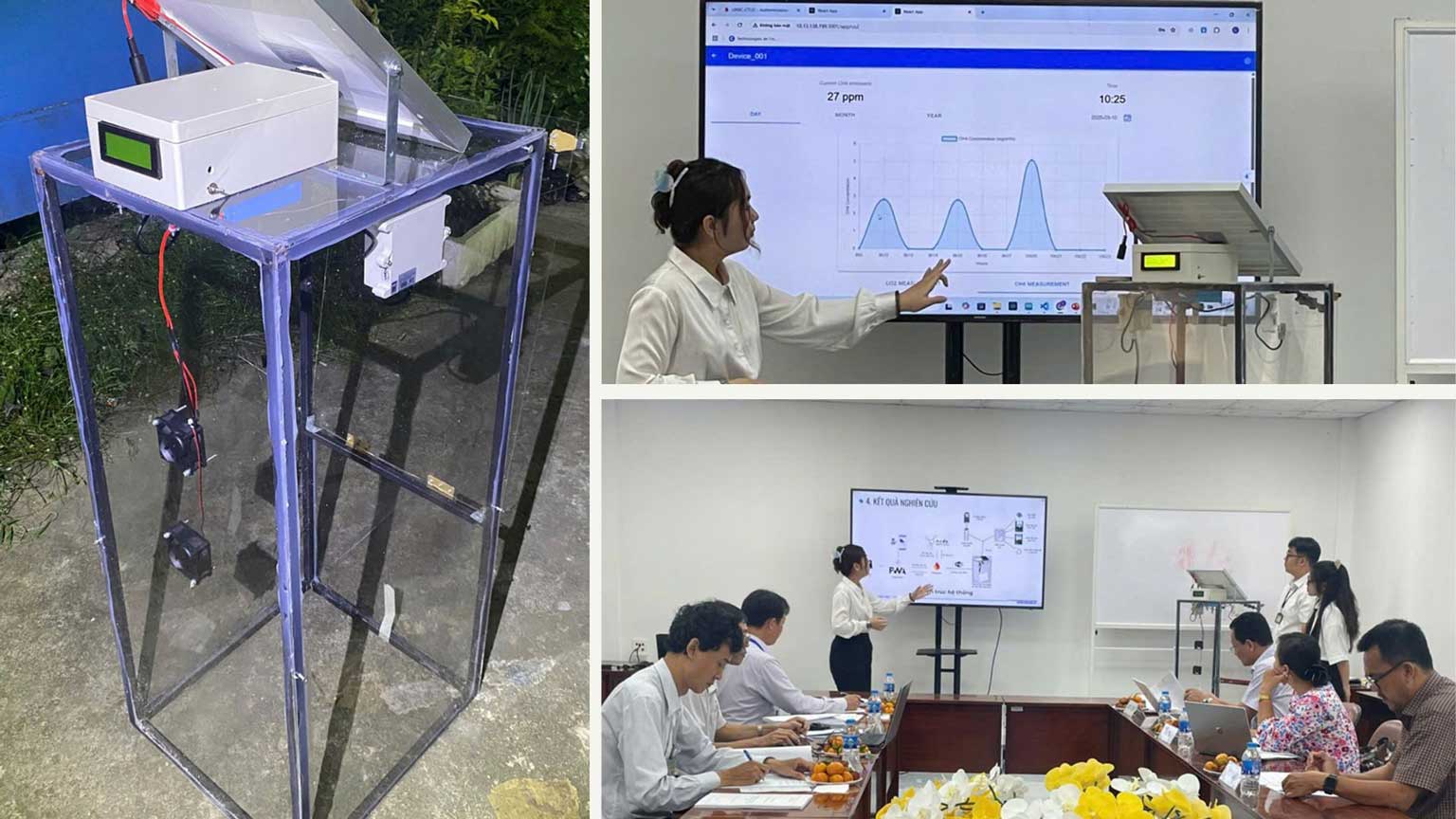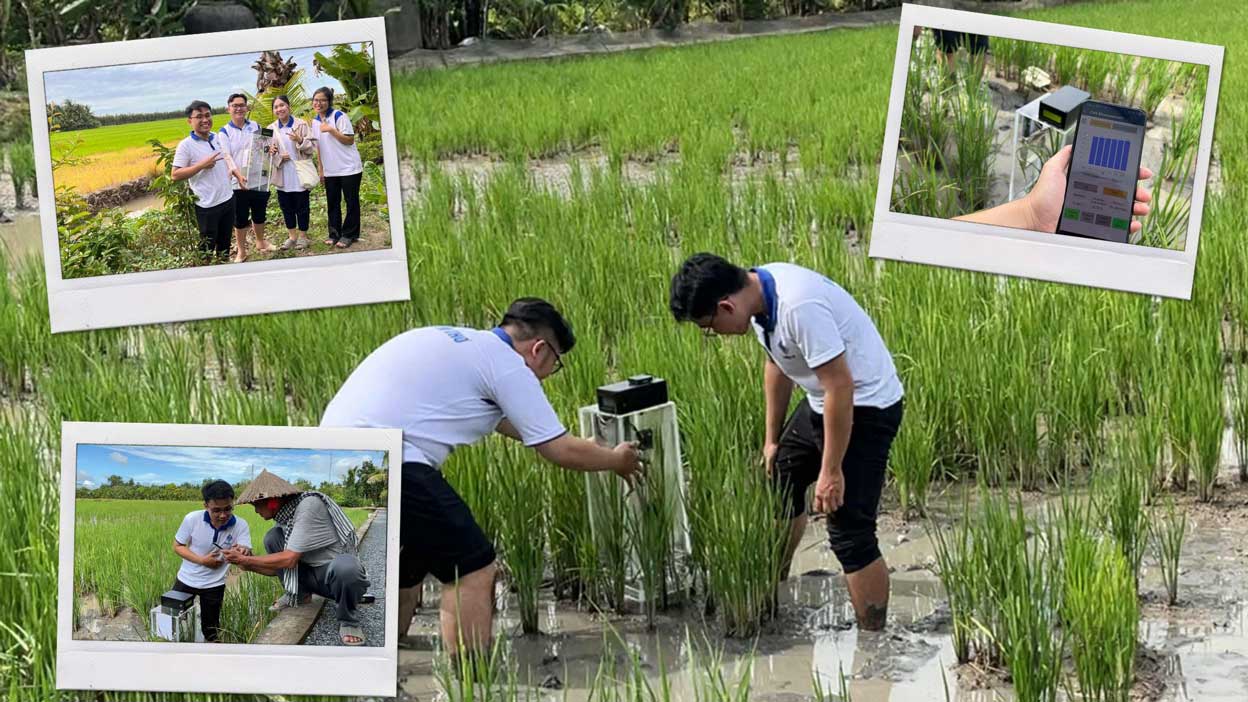In an effort to realize the commitment to achieve Net Zero (net emissions of 0) by 2050, the agricultural sector is facing an urgent need to innovate agricultural technology and methods. One of the outstanding issues is emissions from rice cultivation - an activity that accounts for the majority of greenhouse gas emissions in the entire agricultural sector.
From that practice, a group of students from Can Tho University including Le Lu Huyen Tran and Mai Nhat Minh (CLC course 48 of the School of Information Technology and Communications); Le Nguyen Anh Thu (Financial - Banking (CLC) - Course 48 of the School of Economics) developed the EcoTraceTech project - an automatic CO2 and CH4 emission monitoring and measurement system right on the field, applying IoT technology.
"The project was launched at the end of 2023 and stems from the desire to solve a big problem: how to measure CO2 and CH4 emissions right in the field continuously, accurately, at low cost and easily implemented?", Huyen Tran - Head of the project group shared.

Notably, before completing and participating in startup contests, the project only stopped at the scale of a scientific research topic (NCKH). During the implementation process, the theme has gone through many stages of testing and completion with close and smooth coordination between members.
In particular, the guidance of lecturers in many fields of agriculture, environment and electrical and electronic engineering has contributed significantly to helping the topic both ensure technological connectivity and closely follow the practical needs of the agricultural sector of the Mekong Delta.
Realizing that the topic is not only limited to academic research but also has great potential for practical application, this group of students boldly developed it into a startup project. This is not only a necessary step to turn ideas from the laboratory into practical solutions, but also towards the goal of developing tools to support farmers to participate in the low-emission, sustainable rice supply chain and aim for export.
Realizing the NCKH theme to a startup project is a big change, and we have encountered many difficulties. In addition to technical problems, changing thinking - from an academic, in-depth approach, to market thinking, business thinking and overall solutions has caused many challenges, Huyen Tran recounted.

Up to now, the group's NCKH topic has completed the acceptance process with good results and received high appreciation from the professional council. Moreover, the startup project has also achieved many impressive results in domestic and foreign competitions.
Notable examples include the Encouragement Prize at the UNIIC IDEATHON 2024 competition held in the Philippines; Being 1 of 199 projects nationwide that entered the semi-finals of the Green Startup competition organized by BSA; Entering the final round of the Mekong Delta region Startup ideas contest - INNOBE 2024; First Prize of the CTU_Startup 2025 contest organized by Can Tho University.
In terms of practical application, the device has been tested in some rice growing areas in Vinh Long province, initially recording positive results in the ability to measure and record environmental data.
In the coming time, Huyen Tran and her group members will continue to improve products, upgrade software; Link with business units and agricultural cooperatives to conduct extensive testing; seek technology partners and invest to commercialize the system, contributing to creating support tools for measuring and verifying emission reduction for sustainable rice farming models.
